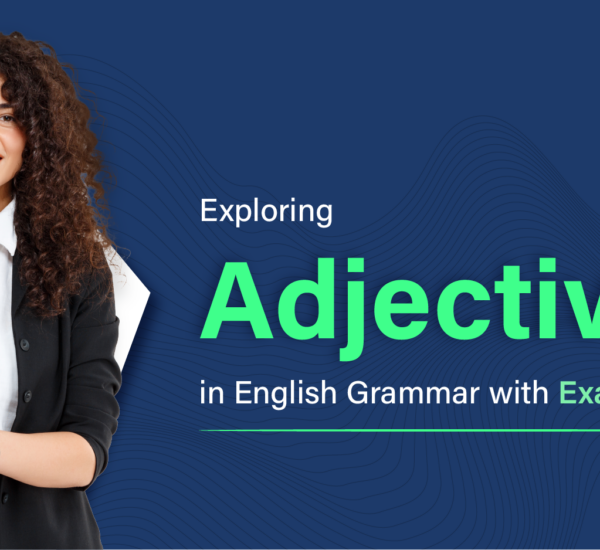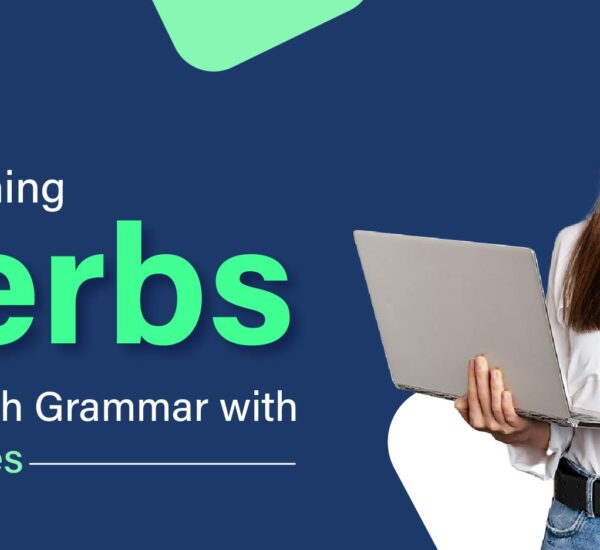Conjunctions are an important part of English Grammar. Conjunctions are used in a variety of different sentences while writing or speaking the language. With the growth of the language worldwide, the learners are also growing.
Everyone aims at gaining maximum information regarding English to sound magnificent between the people and to understand and use the language perfectly. You need to go through this article to understand each point about the conjunction in English Grammar.
The Conjunction rules, as well as Conjunction definition, are provided in the article for the learners so that you initiate your learning step by step towards the highest mark. So, get prepared to witness the most crucial part of English in the article. This portion is used in all the sentences used regularly.
You have to learn about it so that you make your sentences correct and worth answering. You will be able to link two words or a group of words and phrases with the help of conjunctions. The examples will help you to understand each point better. So, let’s start with the article and be exponentially knowledgeable about the concept.
Also Read: Types of Adjectives: Start and Build the Foundation of Grammar Through the Easy Way
Conjunction Definition
A conjunction is used to join the words or phrases and to make the sentence readable. The construction of the sentences is done by the conjunctions by adding the clauses, phrases, and words.
The Conjunction can also be called a link between words or a group of words in a sentence. Moreover, they show a relationship between words, phrases, and clauses in the sentence. It is a common part of English because it is used frequently in multiple sentences.
Whenever you think about linking two words or a group of words, you will need a Conjunction. Conjunctions are major of five types. You will get the information about all the types of conjunctions in the article ahead along with the examples.
Let’s have a look at some examples. The conjunctions are used everywhere, so understand the way of practising using them in your sentences.
#. Kim and John are playing together.
#. Reena plays well, but Rakasa plays better than her.
#. I play cricket, and Rohit plays football.
#. When she was sick, I went to see her.
Conjunction Types
The Conjunction types are important for you to know because different types are used in different types of sentences. These types are easily understandable to the learners. Also, you have the examples present along with the definition of the types of conjunctions that will give you the best understanding of the concepts.
Firstly, have a look at the Conjunction types.
#. Coordinating Conjunctions
#. Correlative Conjunctions
#. Subordinating Conjunctions
#. Compound Conjunction
#. Adverbial Conjunction
Now, scroll your screen a bit to start acknowledging the explanations of different types of conjunctions.
Coordinating Conjunctions
The coordinating conjunctions are used to join two words, independent clauses, and phrases. The coordinating conjunctions join the words or phrases if they are structured parallel in a sentence.
The seven coordinating conjunctions are frequently used by English writers and speakers to join different words, clauses, or phrases. These seven conjunctions are by far the most used coordinating conjunctions.
The trick to learning all of the seven is FANBOYS. These conjunctions are: and, but, for, nor, or, so, yet. With the help of the acronym, you will find it easy to learn these conjunctions.
For – I was meaning to leave soon, for I was getting late to the next class.
And – Freya left quickly and I was worried about her.
Nor – They weren’t up for athletics nor was I.
But – We were running late but it wasn’t possible to get out of here anytime soon.
Or – Is it okay or should I go for the last laugh?
Yet – It was early in the morning yet we were all ready to go home.
So – He was panicking so we were cautious.
The examples for using these conjunctions in the sentences are given below:
#. We went to the tennis court and enjoyed the tennis match.
#. Do you want chocolate or would ice cream be preferable?
#. Go away and never come back.
Also Read: Punctuation in English Grammar: Let’s Try to Understand the Rules and Usage to Make Writing Smoother
Correlative Conjunctions
The correlative conjunctions are broadly used to compare or contrast between two elements or parts in a sentence. The correlative Conjunctions used prominently are:
not only – but also, either- or, neither – nor, both – and, not – but, whether – or etc.
Examples:
#. Neither Rohan nor Reeta can play baseball.
#. He didn’t know whether to call in or wait his turn.
#. I want both chocolates and cupcakes.
#. She ate not only the cupcakes but also the cereal.
#. Rakesh is both the CEO and Managing Director of the company.
Subordinating Conjunctions
The subordinating conjunctions are prominently used to join the elements of an unparalleled structure in a sentence. These elements are most often independent or dependent clauses.
The most frequently used subordinating Conjunctions are:
After, how, then, when, although, if, that, where, as, in order that, though, which, as much as, inasmuch as, unless, while, because, provided, until, who/whom, before, since, what, whoever and whomever.
Examples:
#. Before we left home, I had had my lunch.
#. Provided they come, we can start class Thursday.
#. When she was washing my window, I went to the shop.
#. Even though the weather was petrifying, they still went for the walk.
Also Read: How to Use Verbs Like Is, Are, Was, Were? Check Out the Best Information for Learning Excellently!
Compound Conjunction
These conjunctions have different behaviour than other ones. They behave in two or three parts and each part is not necessarily a Conjunction. The parts are inseparable from the normal sentences but are together as Conjunctions in some sentences. Understand them precisely with the examples:
#. My siblings love to go skinny dipping as well as walking in the sun.
#. She acted as if it were her first time on a beach.
#. We made a deal to see them provided that we were assured police protection.
#. I hurried out of the store so that I didn’t have to listen to the manager anymore.
Adverbial Conjunction
The adverbial Conjunctions behave like adverbs while bringing together two different thoughts in a sentence. Due to this behaviour, they are often called conjunctive adverbs. The examples are here to follow:
#. I was looking for a salon; additionally, I needed a tea stall for a complete relaxed mind.
#. Teena was banking on her skills as a saleswoman. Meanwhile, she should have researched the customers.
#. I screamed my discomfort out, that is, I didn’t like the sweatshirt I was getting.
#. Muskan was on her way back home, therefore, the world she left behind her didn’t bother her as much.
Conjunction Examples
The examples given below are searched and provided here to benefit your learning of the conjunctions. You must go through all the Conjunction examples to use them while speaking or writing English.
#. I can pass after the red light is off.
# Although William speaks seldom, Katty says meaningful thoughts.
#. I went to bed at 11 pm as I had a flight to catch at 6 am.
#. She talks as if she was poor.
#. You can go as long as you are not tired.
#. I hate Pumpkin as much as I hate Tomatoes.
#. As soon as I went to the office, I started to work.
#. It seems as though he is in a hurry.
#. Komal usually eats at home, because she likes cooking different meals.
#. My assignment must be finished before evening.
#. Nea works every day, even on Sundays.
#. You will go to that market even if they don’t allow you.
#. Even though it rained a lot, our parents enjoyed the holiday.
#. William has very much money.
#. However, he’s not all that rich.
#. Let me know if Karim goes to the park.
#. If only John had been able to come.
#. As long as it rains, we’ll take an umbrella.
#. People burn trees in order that they have more land and furniture.
#. Just as we were watching the Cricket match on Television, the electricity went off.
#. He must study deeply lest he fail.
#. Now go home and cook cupcakes.
#. Once I start working, I must continue.
#. I will go to the office provided the others go.
Also Read: Infinitive in English Grammar: Let’s Learn English Effectively to Get More Opportunities!
Some More Examples!
Here are some more examples for your reference. Don’t miss out on learning English effectively.
#. Monu can borrow the laptop provided that you promise to give it back in time.
#. I go to the grocery store weekly rather than monthly.
#. Since I was ill for four months, I lost my immunity.
#. He was too late so he could not apply for the examination.
#. Supposing you had a parrot, what would you do with it?
#. Kim runs faster than me.
#. Though it was raining heavily, Rohan swam in the pool.
#. Please stay at home till evening.
#. I will go to the mall unless it is very crowded.
#. I waited for him until ten o’clock.
#. I was watching a web series when he came in.
#. You can go whenever you want.
#. He was eating in the storeroom, where there was a table.
#. Sohail is very funny whereas Monami is boring.
#. Our team members can meet you wherever you want.
#. I worry about whether he’ll be a good person for the partnership.
#. I found an Almirah which was very important.
#. While I was playing with the students, Rohit came to the ground.
#. I visited Karim who was ill.
#. Whoever says so is ignorant.
#. He asked her why she was playing tennis.
Conclusion
Therefore, you must have read the article and got the information regarding conjunctions’ uses in English Grammar. If you want to acknowledge more information regarding conjunctions or any other English Grammar concept, you can visit the Fluent Life website. The website is popular among the group of English learners. People seeking English learning like the website because of the effective articles and expert advice.
The experts give you perfect knowledge and mentorship through lectures and replies in the comment section. The articles on the website are related to multiple English concepts along with examples and rules.
You can go through the articles to understand each topic and concept to use it perfectly in front of personal and professional people. Moreover, the increasing digitalization has given you the best options to download the applications on your device.
You also have the choice to download the Fluent Life app on your mobile phone for customized personal lectures where you get instant feedback on your performance and can resolve all your queries.






